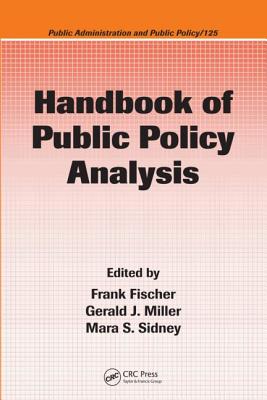These 40 chapters are presented by the editors (all of Rutgers U.) as an overview of the historical development, methodologies, theories, and debates in the field of public policy analysis. Historical chapters focus on the contributions of Harold Lasswell, the founder of the field, as well as the relationship between the evolution of the modern state and public policy analysis. Theories of the policy process, from agenda setting to implementation are discussed, followed by examinations of the roles of advocacy and expertise in policy making. The roles rationality, networks, learning, argumentation, rhetoric, and narratives in the policy-analytic process are discussed in a series of contributions. Other sections explore comparative, cultural, and ethical aspects of public policy; describe the quantitative and qualitative analytical methods employed in policy research; examine decision tools such as cost-benefit analysis, environmental impact assessment, participatory technology assessment, and dispute mediation. Finally, national contexts for policy analysis are discussed in chapters covering Britain, the Netherlands, Sweden, Germany, India, and South Korea. Annotation 穢2007 Book News, Inc., Portland, OR (booknews.com)











